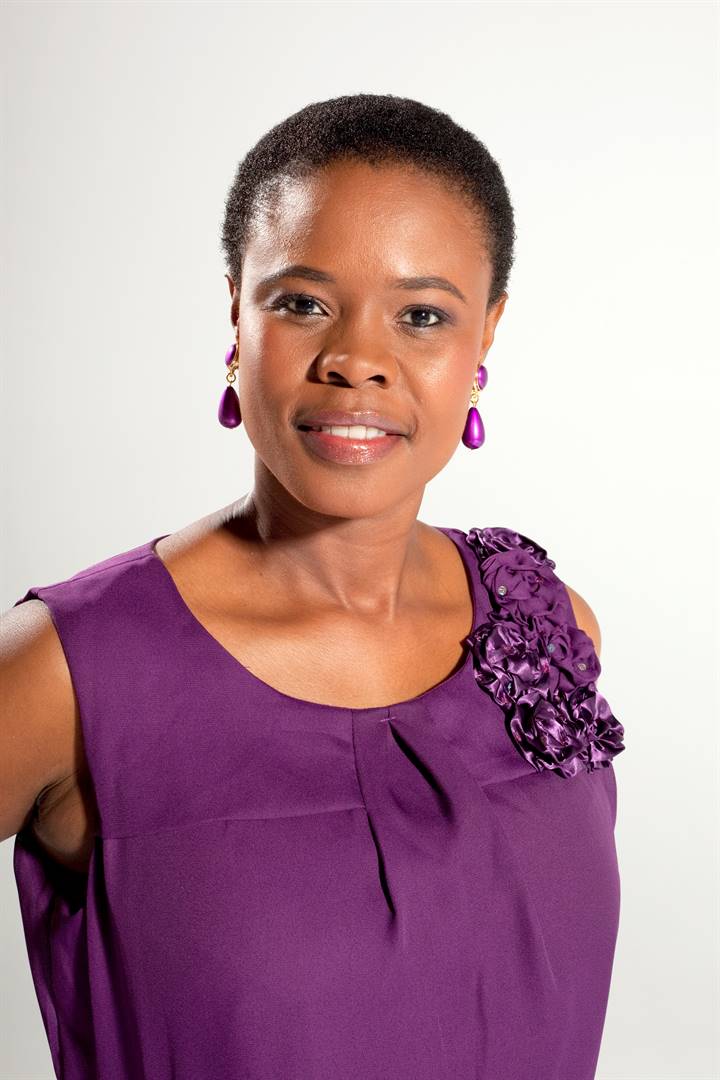
There’s a new queen in the slammer for season 4 of the prison drama Lockdown. Ntombizodwa Makhoba asked Nthati Moshesh about her badass role and her reflections on the industry as her 50th birthday beckons.
It’s time to get back behind bars as season 4 of the hit drama series Lockdown returns to the small screen tonight.
While many of the old villains are back in their cells, there is also a new queen in the slammer.
Veteran actress Nthati Moshesh joins the cast as Masabatha, the leader of a cult.
Moshesh says this storyline is a timely one.
“With the explosion of self-styled prophets such as Shepherd Bushiri making news headlines, the timing could not have been more perfect for me to play a spiritual leader today.
“Hopefully, this role will open up even more dialogue about the religious state of our country. It is very scary how easily swayed people are.
“I have played dodgy, conniving cows before, but Masabatha has outdone herself. She is a master manipulator.”
The dangerously charismatic Masabatha is also blind, and Moshesh says portraying a blind person has helped her gain a greater understanding about the condition.
“My character is blind and that has made me value having my sight so much. I believe I have become even more empathetic to blind people and what their world must be like on a daily basis.”
Moshesh joins a formidable cast of women in the series. The veteran actress, who has been in the business for 25 years and turns 50 years old this year, says that joining Lockdown has been like a reunion.
“I was reunited with Pamela Nomvete, with whom I shared a stage for five months performing Nothing But the Truth, along with John Kani. I played his daughter, Thando.
“Linda Sebezo and I did the telenovela Greed and Desire together. Lorcia Cooper and I were in the soapie, Scandal!, together. Zola Nombona and I performed last year in the play You Fool, How Can the Sky Fall by the iconic playwright and novelist, Zakes Mda. Natasha Thahane and I were in the drama series Saints and Sinners not too long ago. And, of course, meeting my soul mate, Dawn Thandeka King, was a highlight for me ... it felt as if we had known each other for ever.”
However, a cast full of strong female characters is not the norm here or anywhere else in the world. Before getting the call to join the cast, Moshesh says she was short of work.
“I was sitting without work. Last year alone, I worked the equivalent of four months doing the odd voice-over, calling my agent endlessly ... As you get older, it becomes harder.
“While many may see me as a legend, the industry sometimes casts us out. Also, being a woman and approaching 50, it is difficult to get good roles, whereas with male performers the roles get juicier as they get older.
“It is a global trend, not just here in South Africa. Hence, you are seeing a rise of female producers, especially in the US. I wish the same would happen here in South Africa.”
Despite these challenges, Moshesh is excited to be working on a production that welcomes women of all ages. Having got her start on the small screen in the soapie Egoli, working with Franz Marx, she is pleased to now be working with Mandla Ngcongwane, better known in the industry as Mandla N.
“I started off with a game changer – Franz Marx on Egoli – only to meet an incredible young black man changing the game now. The crew has been amazingly welcoming and it has honestly been just unbelievable.”
She says much has changed since the days of Egoli. “When I started out, the shooting periods were longer and budgets were bigger. There was no social media. Stories were told differently.
“However, the downside was that black women were not portrayed in our own voices but through the eyes of a white man. The stories were all told from a white male perspective. I played a lot of maids, from all over the continent.
“Egoli was South Africa’s first soapie, and quite a privilege to work on. Marks spent a lot of time studying American soaps, so Egoli was very glamorous, and he never compromised. His actors were picture perfect because he wanted to embody the American style, which worked.
“He also took the star system to another level at a time when it was not so popular. Magazine covers were huge back then too; for the first time I couldn’t go to the supermarket. Thanks to Egoli, for my first trip overseas I was upgraded to first class – a major achievement in those days. I was upgraded even on my return trip from London, with my oversized luggage and all. I was overwhelmed. I was young and excitable.
“Being popular in the apartheid era was different to the liberation we have now. Being on Egoli triggered my entire career and it was both good and bad.”
As for whether our local industry has room for improvement, Moshesh is says there is “lots, lots, lots” of room for improvement. “I watch and am influenced by our international counterparts. The content, the productions ... I think it starts with our writers. We need to develop more writers – specifically, female writers. The female narrative has to reach the next level.
“Also, black people still don’t own or run the industry, and therefore our stories are still influenced and controlled by who has the money.”
However, the passion Moshesh has for her profession remains untainted and she lives by this quote: “I am going to take my last breath on stage or on set.”
Explaining further, she says: “The passion will never die. I am influenced by people like Maggie Smith and Dame Judi Dench. Locally, it is Mary Twala, but she hasn’t appeared much lately.”
Tonight, when Lockdown fans meet Masabatha, remember to differentiate Moshesh from her more serious character.
“On set I am a clown. We twerk and go absolutely bonkers … I am the complete opposite of the part I play.”
Moshesh plays a blind Masabatha – a cult leader.
She manipulates her congregants and convinces them to commit mass suicide.
The listen to her and go through with it and Masabatha is arrested and accused of witchcraft.
Moshesh describes Masabatha as a “sick woman”.
Her character comes at a time when cult leaders and false prophets are making headlines in South Africa.
She says her part couldn’t be more relevant.
“It’s about indoctrination, brainwashing, giving people false hope, the gullibility of people and selling a dream to people.”
She also thanks the creator of Lockdown, Mandla N, for restoring the old Nthati.
“I feel like the old Nthati has been restored and rejuvenated. I was starting to be negative about the industry, but I have learnt that I must not fight with the system, but work with the system.”
Moshesh says she sometimes surprises herself when she sees her work on TV.
“I never feel it’s me, when I am acting. It’s an out of body experience. I am just a vessel, vehicle and channel for the story.”
She says she always preferred to watch her episodes alone, because she is her own critic.
On the lesson she learnt from Masabata’s storyline, she says: “I have learnt about my own spiritual journey. There is so much falsehood within religion and I hope many people are going to be more vigilant and learn a lot from Masabatha about these false prophets.”
Lockdown season 4 airs on Monday at 8pm on Mzansi Magic, channel 161
 |
| ||||||||||||
| |||||||||||||




 Publications
Publications
 Partners
Partners








